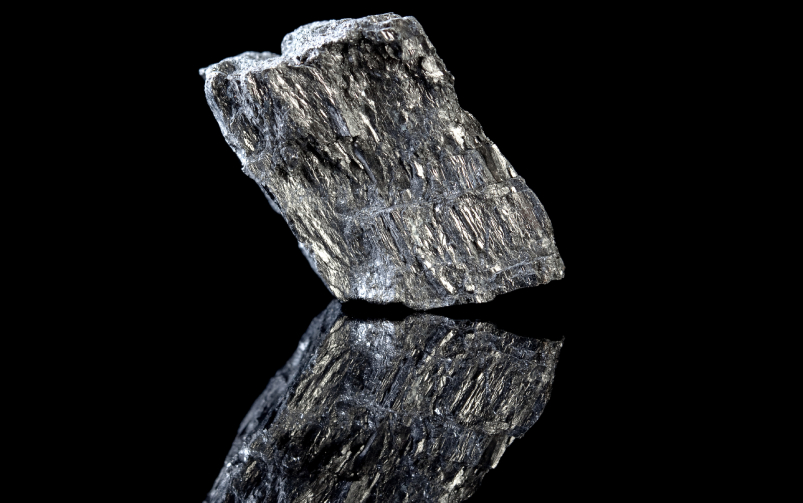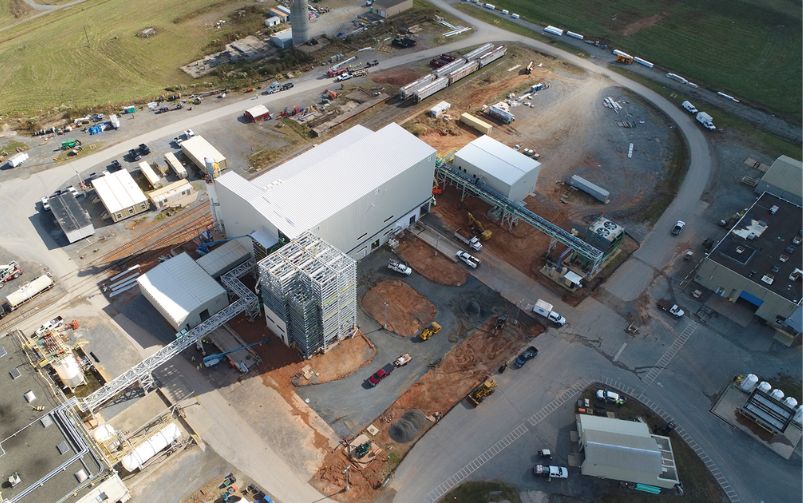Pennsylvania State University is working alongside junior miner Hertz Lithium to test its new extraction technology. Courtesy of Penn State.
Pennsylvania State University (Penn State) and Vancouver-based junior miner Hertz Lithium Inc. have partnered to develop a new lithium extraction technology, which would reduce the cost of extracting lithium from alpha spodumene by cutting energy consumption. Alpha spodumene is the most common naturally occurring variety of the rock, and is converted to the less-dense beta spodumene as part of the lithium extraction process. The mineral is a key source for high-quality lithium, but currently requires an energy-intensive process to extract it.
The new lithium extraction method being developed by Penn State, and which will be tested by Hertz Lithium once it is commercialized, uses leaching as an alternative to extremely high-temperature roasting and acidic baking.
At present, extracting lithium from alpha spodumene requires modifying the crystal structure of the mineral through intense heat, generally around 1,100 degrees Celsius, which converts it to beta spodumene. Then, the beta spodumene goes through a sulfuric acid baking process at approximately 250 degrees Celsius, after which lithium is extracted from the water-soluble lithium sulfate.
“Both of these processes [modifying the crystals and acid baking] are very energy intensive and also require a significant amount of chemicals,” said Mohammad Rezaee, researcher and associate professor of energy and mining engineering at Penn State. “That process generates about nine tonnes of CO2 per tonne of the produced lithium carbonate equivalent.”
Related: Canada is primed to become a supplier of lithium to help fill the looming gap for the energy transition
The new process introduces sodium hydroxide to the spodumene concentrate, which transforms the spodumene into a soluble phase through conventional heating, although microwave roasting is also being tested as an alternative. Even if the new method finds that the conventional roasting system works better than microwaves, the new heating process would only heat to 220 degrees Celsius, substantially lower than the 1,100 degrees necessary for traditional roasting. After conventional heating, the alpha spodumene is converted into a soluble phase, and the acid is leached to recover approximately 90 per cent lithium. Microwave sodium hydroxide roasting and water leaching also recovered more than 90 per cent lithium.
Rezaee explained that the process reduces the amount of greenhouse gas emissions by eliminating calcination and also all the chemicals that are utilized for the acid baking. In standard practice, following acid roasting, the lithium solution undergoes a chemical treatment by base chemicals to raise the acidic solution’s pH above 10. In this new alternative, since the lithium leachate solution is already basic, the treatment stage does not require acidic solution treatment; therefore, it requires less chemicals and produces less waste.
Looking to the future, researchers are continuing to optimize the parameters that maximize lithium recovery in water leaching. In the coming months, the research team plans to conduct kinetic studies, pilot testing and life cycle assessments, which should provide a more specific and concrete understanding of the new technology’s environmental benefits over standard roasting processes.
The technology process is still several years away from commercialization.




